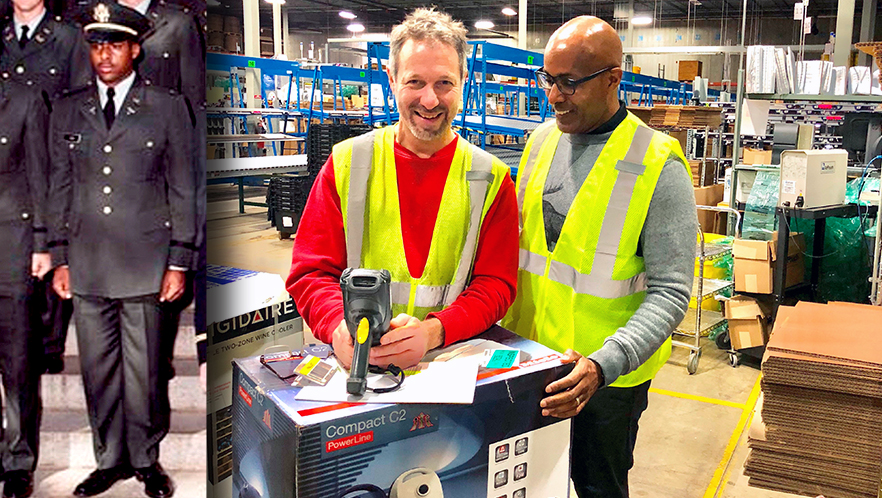As Best Buy’s vice president of supply chain, Mark Irvin helps the company move millions of tech products from our distribution centers to our stores and customers every year.
He has spent more than 25 years in corporate supply chain operations. But before that, Mark started his career in field medical logistics in the Army.
The Michigan native spent eight years in the military, starting in Reserve Officers’ Training Corps (ROTC) during college and rising to the rank of captain. He spent most of the time in the Medical Service Corps, where he helped get supplies where they needed to go.
Mark has used many of the skills he learned in the Army in his civilian career. But equally important, he says, are some of the leadership lessons he learned along the way.
Functioning outside your comfort zone
In the military, it’s not uncommon to find yourself in roles you’ve never done before, and that was certainly the case for Mark. His first duty assignment was as a second lieutenant at Fort Lewis, Washington, where he oversaw a team of medics and a physician’s assistant.
“Everybody else had years and years of service,” he recalls. “I was the one who was brand new, trying to figure out how to lead a team when I didn’t really know much about it other than what I learned in basic training. You quickly realize that outside the comfort zone is where we live.”
The good news, he says, was that it was OK to try and fail or test and learn. And that’s a culture he tries to foster within his teams today.
“I never walked away from a conversation feeling like my career was over,” he said. “It wasn’t that way. It was truly a learning moment.”
He tries to apply that same attitude to the way he leads his team today.
“If people feel like they have to be perfect, the work becomes drudgery,” he says. “If they know it’s OK to learn and grow on the job, then work is fun. The military was all about that.”
Leaning in to learn
When you’re constantly working outside your comfort zone, you’re forced to accept that you don’t know everything. Mark says that taught him to be humble and to always seek opportunities where he could lean in to learn.
“One of my mentors told me, ‘You have to read, and you have to digest information like crazy,’” he says. “So, I just developed that habit of constantly reading, asking questions and spending time with people.”
When Mark joined Best Buy five years ago, he spent the first 15 days talking to front-line employees in the distribution centers to learn as much as he could about the operations.
“I would tell teams, ‘I want to simply walk and talk, and see if I can understand what’s going on through your lens,’” he recalls. “Then, on Day 16, I was able to say, ‘OK, here’s what I’ve heard.’ You regurgitate that stuff to a team and they say: ‘That’s what we said! We’re all in on what we said.’”
Valuing and respecting your team
That approach also taught Mark the importance of valuing and respecting the broader team.
“In Corporate America, we call it engagement,” he says. “Team members know you value them because you listen and you follow up on what they ask you to do. That absolutely skyrockets in terms of people wanting to be part of your team, enjoying their work and bringing their best selves to work.”
Mark says he also learned another valuable lesson in respect when wrestling with how to talk to someone who was struggling in their role. The command sergeant major of Mark’s battalion role-played the conversation with Mark, then advised him to speak to the individual as though his spouse, children or family members were in the room.
“That forever shaped what I would say to someone. Forever,” Mark says. “I will sometimes role-play with people on my team to help them think about what they’re going to say to someone else. Then we’ll go through how it would impact them if they were on the other side of the table. Is that person going to walk away intact or broken?”
Mark says his goal is to always leave people feeling inspired.
Are you a military veteran? Click here to see how your skills might translate to a career at Best Buy.


